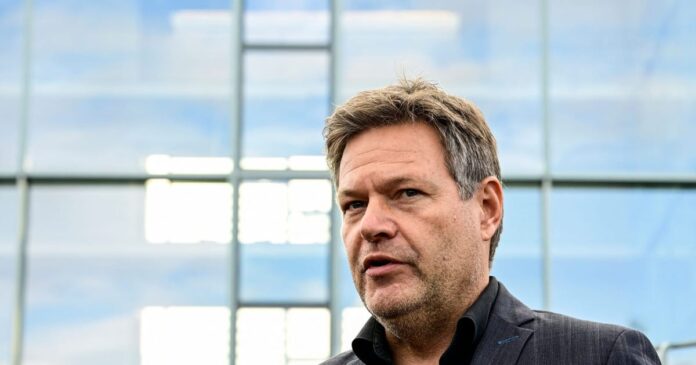BERLIN — Germany’s three-party ruling coalition descended into public infighting on Tuesday as the Greens’ Vice Chancellor Robert Habeck accused the liberal Free Democrats of Finance Minister Christian Lindner of breaking promises by delaying a controversial green energy law.
Habeck also attacked a plan by Lindner to enforce painful cuts of up to €22 billion in next year’s budget and warned that Germany faced “major [financial] needs everywhere, especially in the areas of decarbonization and digitalization.”
The spat highlights growing tensions in the government of Social Democratic Chancellor Olaf Scholz, who is leading a coalition with the Greens and the Free Democratic Party (FDP).
The parties hold diverging opinions over how Germany should implement the EU’s green plans to slash carbon emissions by 55 percent by 2030 and become climate neutral by 2050. That green energy dispute is complicated by a shortfall in tax income, which reduces the financial leeway to subsidize the shift to renewable energies.
At the core of the spat is a new energy law for buildings, which aims to phase out gas and oil heating in German households by requiring that, as of next year, any newly installed heating system in Germany must run 65 percent on renewable energy. That idea is highly controversial owing to its costs, as the most viable option to hit this green energy target is a heat pump, which costs around €20,000 more than a classic gas boiler.
The Greens had planned to submit the law to parliament this week, insisting that all three government parties had previously agreed to the timeframe and that existing heating systems would not be affected by the gas and oil heating ban for the foreseeable future. However, the FDP blocked the Greens’ plan, which triggered a furious reaction from Habeck.
“The fact that [the law] is not being set [on the Bundestag agenda] is, in my view, a breach of the promise” by the FDP, the Green vice chancellor and economy minister told reporters in Berlin. He said all three ruling parties had agreed the heating legislation should be approved “before the parliamentary summer recess.”
“That will now no longer be possible with the postponement,” he added.
The Greens also lambasted the FDP over the delay in a tweet while urging a quick submission of the law to parliament to provide “planning security and reliability” for businesses and citizens.
The FDP immediately shot back, with energy spokesperson Michael Kruse arguing his party had been saying “consistently for weeks … that we have a fundamental need for change in terms of content of the law, and that for us the draft presented by Robert Habeck does not represent a sufficient basis for consultation for the parliamentary procedure.”
During a talk show debate on Monday night, FDP whip Christian Dürr and the Greens’ Katrin Göring-Eckardt, one of the parliamentary vice presidents, clashed so fiercely that it was barely conceivable that their parties were sitting in the same government.
Scholz’s Social Democrats sought to cool the escalating dispute on Tuesday, with the party’s deputy whip Matthias Miersch vowing to hold talks this week to achieve an “improvement of the law.”
Miersch stressed the law should still pass parliament before the summer break: “People are increasingly fed up with the bickering over heating and want clarity,” he said.
New trouble looms, however, over planned budget cuts: As Bloomberg first reported on Tuesday, Scholz and Lindner are planning to close a €20 billion financial gap in Germany’s 2024 budget with expenditure cuts in all ministries except defense.
That is irking the Greens, who are pushing for more money for their projects, not least to alleviate the costs that the shift to renewable energy brings to households and industries.
Habeck confirmed the threatened budget cuts on Tuesday, while saying that he could not exactly say whether there’s a shortage of “€20, €22 or €18 billion.”
“It’s the first time in many years that the federal budget is getting smaller, and … of course the whole system is not attuned to that,” he warned.
The Greens’ budgetary spokesperson Sven-Christian Kindler criticized the planned cuts and said Germany should instead plug budget holes by raising taxes for the rich and reducing “climate-damaging subsidies” such as for certain types of diesel.


